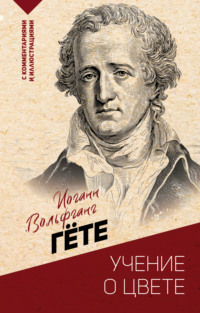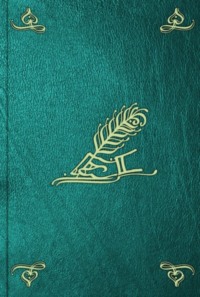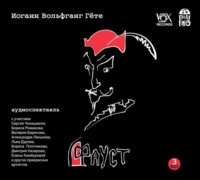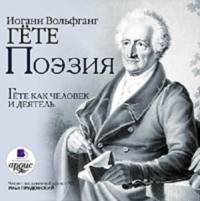 полная версия
полная версияThe Autobiography of Goethe
On the one hand these things gave me much pleasure; as all that took place, no matter of what nature it might be, concealed a certain meaning, indicated some internal relation, and such symbolic ceremonies again, for a moment, represented as living the old Empire of Germany, almost choked to death by so many parchments, papers, and books. But, on the other hand, I could not suppress a secret displeasure, when I was forced, at home, on my father's account, to transcribe the internal transactions, and at the same time to remark that here several powers, which balanced each other, stood in opposition, and only so far agreed, as they designed to limit the new ruler even more than the old one; that every one valued his influence only so far as he hoped to retain or enlarge his privileges, and better to secure his independence. Nay, on this occasion they were more attentive than usual, because they began to fear Joseph the Second, his vehemence and probable plans.
With my grandfather and other members of the council, whose families I used to visit, this was no pleasant time, they had so much to do with meeting distinguished guests, complimenting, and the delivery of presents. No less had the magistrate, both in general and in particular, to defend himself, to resist, and to protest, as every one on such occasions desires to extort something from him, or burden him with something, und few of those to whom he appeals support him, or lend him their aid. In short, all that I had read in Lersner's Chronicle of similar incidents on similar occasions, with admiration of the patience and perseverance of those good old councilmen, came once more vividly before my eyes.
Many vexations arise also from this, that the city is gradually overrun with people, both useful and needless. In vain are the courts reminded, on the part of the city, of prescriptions of the Golden Bull, now, indeed, obsolete. Not only the deputies with their attendants, but many persons of rank, and others who come from curiosity or for private objects, stand under protection, and the question as to who is to be billetted out, and who is to hire his own lodging, is not always decided at once. The tumult constantly increases, and even those who have nothing to give, or to answer for, begin to feel uncomfortable.
Even we young people, who could quietly contemplate it all, ever found something which did not quite satisfy our eyes or our imagination. The Spanish mantles, the huge feathered hats of the ambassadors, and other objects here and there, had indeed a truly antique look; but there was a great deal, on the other hand, so half-new or entirely modern, that the affair assumed throughout a motley, unsatisfactory, often tasteless appearance. We were very happy to learn, therefore, that great preparations were made on account of the journey to Frankfort of the Emperor and future King; that the proceedings of the college of electors, which were based on the last electoral capitulation, were now going forward rapidly; and that the day of election had been appointed for the 27th of March. Now there was a thought of fetching the insignia of the Empire from Nuremberg and Aix-la-Chapelle, and next we expected the entrance of the Elector of Mentz, while the disputes with his ambassadors about the quartering ever continued.
Meanwhile I pursued my clerical labours at home very actively, and perceived many little suggestions (monita) which came in from all sides, and were to be regarded in the new capitulation. Every rank desired to see its privileges guaranteed and its importance increased in this document. Very many such observations and desires were, however, put aside; much remained as it was, though the suggestors (monentes) received the most positive assurances that the neglect should in no wise ensue to their prejudice.
In the meanwhile the office of Imperial Marshal was forced to undertake many dangerous affairs; the crowd of strangers increased, and it became more and more difficult to find lodgings for them. Nor was there unanimity as to the limits of the different precincts of the Electors. The magistracy wished to keep from the citizens the burdens which they were not bound to bear, and thus day and night there were hourly grievances, redresses, contests, and misunderstandings.
The entrance of the Elector of Mentz happened on the 21st of May. Then began the cannonading, with which for a long time we were often to be deafened. This solemnity was important in the series of ceremonies; for all the men whom we had hitherto seen, high as they were in rank, were still only subordinates; but here appeared a sovereign, an independent prince, the first after the Emperor, preceded and accompanied by a large retinue worthy of himself. Of the pomp which marked his entrance I should have much to tell, if I did not purpose returning to it hereafter, and on an occasion which no one could easily guess.
Lavater.
What I refer to is this: – the same day, Lavater, on his return home from Berlin, came through Frankfort, and saw the solemnity. Now, though such worldly formalities could not have the least value for him, this procession, with its display and all its accessaries, might have been distinctly impressed on his very lively imagination; for, many years afterwards, when this eminent but singular man showed me a poetical paraphrase of, I believe, the Revelation of St. John, I discovered the entrance of Anti-Christ copied, step by step, figure by figure, circumstance by circumstance, from the entrance of the Elector of Mentz into Frankfort, in such a manner, too, that even the tassels on the heads of the dun-coloured horses were not wanting. More can be said on this point when I reach the epoch of that strange kind of poetry, by which it was supposed that the myths of the Old and New Testaments were brought nearer to our view and feelings when they were completely travestied into the modern style, and clothed with the vestments of present life, whether gentle or simple. How this mode of treatment gradually obtained favour, will be likewise discussed hereafter; yet I may here simply remark that it could not well be carried further than it was by Lavater and his emulators, one of these having described the three holy kings riding into Bethlehem, in such modern form, that the princes and gentlemen whom Lavater used to visit were not to be mistaken as the persons.
We will then for the present allow the Elector Emeric Joseph to enter the Compostello incognito, so to speak, and turn to Gretchen, whom, just as the crowd was dispersing, I spied in the crowd, accompanied by Pylades and his mistress, the three now seeming to be inseparable. We had scarcely come up to each other and exchanged greetings, than it was agreed that we should pass the evening together, and I kept the appointment punctually. The usual company had assembled, and each one had something to relate, to say, or to remark – how one had been most struck by this thing and another by that. "Your speeches," said Gretchen at last, "perplex me even more than the events of the time themselves. What I have seen I cannot make out; and should very much like to know what a great deal of it means." I replied that it was easy for me to render her this service. She had only to say what particularly interested her. This she did, and as I was about to explain some points, it was found that it would be better to proceed in order. I not unskilfully compared these solemnities and functions to a play, in which the curtain was let down at will, while the actors played on, and was then raised again, so that the spectators could once more, to some extent, take part in the action. As now I was very loquacious when I was allowed my own way, I related the whole, from the beginning down to the time present, in the best order; and to make the subject of my discourse more apparent, did not fail to use the pencil and the large slate. Being only slightly interrupted by some questions and obstinate assertions of the others, I brought my discourse to a close, to the general satisfaction, while Gretchen, by her unbroken attention, had highly encouraged me. At last she thanked me, and envied, as she said, all who were informed of the affairs of this world, and knew how this and that came about and what it signified. She wished she were a boy, and managed to acknowledge, with much kindness, that she was indebted to me for a great deal of instruction. "If I were a boy," said she, "we would learn something good together at the university." The conversation continued in this strain; she definitively resolved to take instruction in French, of the absolute necessity of which she had become well aware in the milliner's shop. I asked her why she no longer went there; for dining the latter times, not being able to go out much in the evening, I had often passed the shop during the day for her sake, merely to see her for a moment. She explained that she had not liked to expose herself there in these unsettled times. As soon as the city returned to its former condition she intended to go there again.
Approach of the Election.
Then the discourse was on the impending day of election. I contrived to tell, at length, what was going to happen, and how, and to support my demonstrations in detail by drawings on the tablet; for I had the place of conclave, with its altars, thrones, seats, and chairs, perfectly before my mind. We separated at the proper time, and in a peculiarly comfortable frame of mind.
For, with a young couple who are in any degree harmoniously formed by nature, nothing can conduce to a more beautiful union than when the maiden is anxious to learn, and the youth inclined to teach. There arises from it a well-grounded and agreeable relation. She sees in him the creator of her spiritual existence, and he sees in her a creature that ascribes her perfection, not to nature, not to chance, nor to any one-sided inclination, but to a mutual will; and this reciprocation is so sweet, that we cannot wonder, if from the days of the old and the new16 Abelard, the most violent passions, and as much happiness as unhappiness, have arisen from such an intercourse of two beings.
With the next day began great commotion in the city, on account of the visits paid and returned which now took place with the greatest ceremony. But what particularly interested me, as a citizen of Frankfort, and gave rise to a great many reflections, was the taking of the oath of security (Sicherheitseides) by the council, the military, and the body of citizens, not through representatives, but personally, and in mass: first, in the great hall of the Römer, by the magistracy and staff-officers; then in the great square (Platz), the Römerberg, by all the citizens, according to their respective ranks, gradations, or quarterings; and lastly by the rest of the military. Here one could survey at a single glance the entire commonwealth, assembled for the honourable purpose of swearing security to the head and members of the Empire, and unbroken peace during the great work now impending. The Electors of Treves and of Cologne had now also arrived in person. On the evening before the day of election all strangers are sent out of the city, the gates are closed, the Jews are confined to their quarter, and the citizen of Frankfort prides himself not a little that he alone may be a witness of so great a solemnity.
All that had hitherto taken place was tolerably modern; the highest and high personages moved about only in coaches; but now we were going to see them in the primitive manner on horseback. The concourse and rush were extraordinary. I managed to squeeze myself into the Römer, which I knew as familiarly as a mouse does the private corn-loft, till I reached the main entrance, before which the Electors and ambassadors, who had first arrived in their state-coaches, and had assembled above, were now to mount their horses. The stately, well-trained steeds were covered-with richly laced housings, and ornamented in every way. The Elector Emeric Joseph, a comfortable-looking man, looked well on horseback. Of the other two I remember less, excepting that the red princes' mantles, trimmed with ermine, which we had been accustomed to see only in pictures before, seemed to us very romantic in the open air. The ambassadors of the absent temporal Electors, with their Spanish dresses of gold brocade, embroidered over with gold, and trimmed with gold lace, likewise did our eyes good; and the large feathers particularly, that waved most splendidly from the hats, which were cocked in the antique style. But what did not please me were the short modern breeches, the white silk stockings, and the fashionable shoes. We should have liked half-boots – gilded as much as they pleased – sandals, or something of the kind, that we might have seen a more consistent costume.
In deportment the Ambassador Von Plotho again distinguished himself from all the rest. He appeared lively and cheerful, and seemed to have no great respect for the whole ceremony. For when his front-man, an elderly gentleman, could not leap immediately on his horse, and he was therefore forced to wait some time in the grand entrance, he did not refrain from laughing, till his own horse was brought forward, upon which he swung himself very dexterously, and was again admired by us as a most worthy representative of Frederick the Second.
Now the curtain was for us once more let down. I had indeed tried to force my way into the church; but that place was more inconvenient than agreeable. The voters had withdrawn into the sanctum, where prolix ceremonies usurped the place of a deliberate consideration as to the election. After long delay, pressure, and bustle, the people at last heard the name of Joseph the Second, who was proclaimed King of Rome.
Approach of the Emperor and King.
The thronging of strangers into the city became greater and greater. Everybody went about in his holiday clothes, so that at last none but dresses entirely of gold were found worthy of note. The Emperor and King had already arrived at Heusenstamm, a castle of the Counts of Schönborn, and were there in the customary manner greeted and welcomed; but the city celebrated this important epoch by spiritual festivals of all the religions, by high masses and sermons; and on the temporal side by incessant firing of cannon as an accompaniment to the Te Deums.
If all these public solemnities, from the beginning up to this point, had been regarded as a deliberate work of art, not much to find fault with would have been found. All was well prepared. The public scenes opened gradually, and went on increasing in importance; the men grew in number, the personages in dignity, their appurtenances, as well as themselves, in splendour; and thus it advanced with every day, till at last even a well-prepared and firm eye became bewildered.
The entrance of the Elector of Mentz, which we have refused to describe more completely, was magnificent and imposing enough to suggest to the imagination of an eminent man, the advent of a great prophesied World-Ruler; even we were not a little dazzled by it. But now our expectation was stretched to the utmost, as it was said that the Emperor and the future King were approaching the city. At a little distance from Sachsenhausen, a tent had been erected, in which the entire magistracy remained, to show the appropriate honour, and to proffer the keys of the city to the chief of the Empire. Further out, on a fair spacious plain, stood another – a state pavilion, whither the whole body of electoral princes and ambassadors repaired, while their retinues extended along the whole way, that gradually, as their turns came, they might again move towards the city, and enter properly into the procession. By this time the Emperor reached the tent, entered it, and the princes and ambassadors, after a most respectful reception, withdrew, to facilitate the passage of the chief ruler.
The Imperial Carriage.
We others who remained in the city to admire this pomp within the walls and streets, still more than could have been done in the open fields, were very well entertained for a while by the barricade set up by the citizens in the lanes, by the throng of people, and by the various jests and improprieties which arose, till the ringing of bells and the thunder of cannon announced to us the immediate approach of Majesty. What must have been particularly grateful to a Frankforter was, that on this occasion, in the presence of so many sovereigns and their representatives, the imperial city of Frankfort also appeared as a little sovereign; for her equerry opened the procession; chargers with armorial trappings, upon which the white eagle on a red field looked very fine, followed him; then came attendants and officials, drummers and trumpeters, and deputies of the council, accompanied by the clerks of the council, in the city livery, on foot. Immediately behind these were the three companies cf citizen cavalry, very well mounted – the same that we had seen from our youth, at the reception of the escort and on other public occasions. We rejoiced in our participation of the honour, and in our hundred-thousandth part of a sovereignty which now appeared in its full brilliancy. The different trains of the Hereditary Imperial Marshal, and of the envoys deputed by the six temporal Electors, marched after these step by step. None of them consisted of less than twenty attendants, and two state-carriages – some even of a greater number. The retinue of the spiritual Electors was ever on the increase, – their servants and domestic officers seemed innumerable, – the Elector of Cologne and the Elector of Treves had above twenty state-carriages, and the Elector of Mentz quite as many alone. The servants, both on horseback and on foot, were clothed most splendidly throughout; the lords in the equipages, spiritual and temporal, had not omitted to appear richly and venerably dressed, and adorned with all the badges of their orders. The train of his Imperial Majesty now, as was fit, surpassed all the rest. The riding-masters, the led horses, the equipages, the shabracks and caparisons, attracted every eye, and the sixteen six-horse gala-wagons of the Imperial Chamberlains, Privy Councillors, High Chamberlain, High Stewards, and High Equerry, closed, with great pomp, this division of the procession, which, in spite of its magnificence and extent, was still only to be the van-guard.
But now the line concentrated itself more and more, while the dignity and parade kept on increasing. For, in the midst of a chosen escort of their own domestic attendants, the most of them on foot, and a few on horseback, appeared the Electoral ambassadors as well as the Electors in person, in ascending order, each one in a magnificent state-carriage. Immediately behind the Elector of Mentz, ten imperial footmen, one and forty lackeys, and eight Heyducks,17 announced their Majesties. The most magnificent state-carriage, furnished even at the back part with an entire window of plate-glass, ornamented with paintings, lacker, carved work, and gilding, covered with red embroidered velvet on the top and inside, allowed us very conveniently to behold the Emperor and King, the long-desired heads, in all their glory. The procession was led a long circuitous route, partly from necessity, that it might be able to unfold itself, and partly to render it visible to the great multitude of people. It had passed through Sachsenhausen, over the bridge, up the Fahrgasse, then down the Zeile, and turned towards the inner city through the Katharinenpforte, formerly a gate, and since the enlargement of the city, an open thoroughfare. Here it had been fortunately considered that, for a series of years, the external grandeur of the world had gone on expanding both in height and breadth. Measure had been taken, and it was found that the present imperial state-carriage could not, without striking its carved work and other outward decorations, get through this gateway, through which so many princes and emperors had gone backwards and forwards. The matter was debated, and to avoid an inconvenient circuit, it was resolved to take up the pavements, and to contrive a gentle descent and ascent. With the same new they had also removed all the projecting eaves from the shops and booths in the street, that neither crown, nor eagle, nor the genii should receive any shock or injury.
Eagerly as we directed our eyes to the high personages when this precious vessel with such precious contents approached us, we could not avoid turning our looks upon the noble horses, their harness, and its embroidery; but the strange coachmen and outriders, both sitting on the horses, particularly struck us. They looked as if they had come from some other nation, or even worn another world, with their long black and yellow velvet coats, and their caps with large plumes of feathers, after the imperial court fashion. Now the crowd became so dense that it was impossible to distinguish much more. The Swiss guard on both sides of the carriage, the Hereditary Marshal holding the Saxon sword upwards in his right hand, the Field-Marshals, as leaders of the Imperial Guard, riding behind the carriage, the imperial pages in a body, and finally, the Imperial Horse-guard (Hatschiergarde) itself, in black velvet frocks (Flügelröck), with all the seams edged with gold, under which were red coats and leather-coloured camisoles, likewise richly decked with gold! One scarcely recovered oneself from sheer seeing, pointing, and showing, so that the scarcely less splendidly clad body-guards of the Electors were barely looked at, and we should perhaps have withdrawn from the windows, if we had not wished to take a view of our own magistracy, who closed the procession in their fifteen two-horse coaches, and particularly the clerk of the council, with the city keys on red velvet cushions. That our company of city grenadiers should cover the rear, seemed to us honourable enough, and we felt doubly and highly edified as Germans and as Frankfurters by this great day.
Maria Theresa.
We had taken our place in a house which the procession had to pass again when it returned from the cathedral. Of religious services, of music, of rites and solemnities, of addresses and answers, of propositions and readings aloud, there was so much in church, choir, and conclave, before it came to the swearing of the electoral capitulation, that we had time enough to partake of an excellent collation, and to empty many bottles to the health of our old and young ruler. The conversation, in the meanwhile, as is usual on such occasions, reverted to the time past, and there were not wanting aged persons who preferred that to the present, at least with respect to a certain human interest and impassioned sympathy which then prevailed. At the coronation of Francis the First all had not been so settled as now; peace had not yet been concluded; France and the Electors of Brandenburg and the Palatinate were opposed to the election; the troops of the future emperor were stationed at Heidelberg, where he had his head-quarters, and the insignia of the Empire coming from Aix, were almost carried off by the inhabitants of the Palatinate. Meanwhile negotiations went on, and on neither side was the affair conducted in the strictest manner. Maria Theresa, though then pregnant, comes in person to see the coronation of her husband, which is at last carried into effect. She arrived at Aschaffenburg, and went on board a yacht in order to repair to Frankfort. Francis, from Heidelberg, thinks to meet his wife, but comes too late; she has already departed. Unknown, he throws himself into a little boat, hastens after her, reaches her ship, and the loving pair is delighted at this surprising meeting. The story spreads immediately, and all the world sympathizes with this tender pair, so richly blessed with their children, who have been so inseparable since their union, that once on a journey from Vienna to Florence they are forced to keep quarantine together on the Venetian border. Maria Theresa is welcomed in the city with rejoicings, she enters the Roman Emperor inn, while the great tent for the reception of her husband is erected on the Bornheim heath. There of the spiritual Electors is found only Mentz, and of the ambassadors of the temporal Electors, only Saxony, Bohemia, and Hanover. The entrance begins, and what it may lack of completeness and splendour is richly compensated by the presence of a beautiful lady. She stands upon the balcony of the well-situated house, and greets her husband with cries of Vivat and clapping of hands; the people joined, excited to the highest enthusiasm. As the great are, after all, men, the citizen thinks them his equals when he wishes to love them, and that he can best do when he can picture them to himself as loving husbands, tender parents, devoted brothers, and true friends. At that time all happiness had been wished and prophesied, and to-day it was seen fulfilled in the first-born son; to whom everybody was well inclined on account of his handsome youthful form, and upon whom the world set the greatest hopes, on account of the great qualities that he showed.









